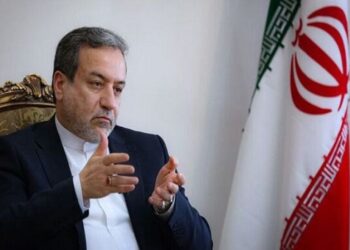Africa’s ambitious energy transition agenda is facing a major threat, with nearly half of the continent’s 2025 energy investment flows projected to be directed into fossil fuels rather than clean energy, the Natural Resource Governance Institute (NRGI) has warned.
Speaking at the 2025 Future of Energy Conference (FEC) in Accra, themed “Unlocking Finance, Driving Implementation of Transition Plans for Africa’s Inclusive Adaptation Pathways,” the Country Manager for NRGI Ghana, Dennis Gyeyir, cautioned that unless financing priorities are redirected, Africa risks locking itself into carbon-intensive pathways that could undermine sustainable growth.
“The future of energy must address the greatest threat to humanity’s existence.
“Without a deliberate shift in financing flows, Africa risks being locked into carbon-intensive pathways at the expense of sustainable growth.”
Dennis Gyeyir, Country Manager for NRGI Ghana
According to him, Africa is expected to attract approximately US$100 billion in energy investment this year, but the significant allocation to fossil fuels is at odds with global commitments to accelerate the clean energy transition.

Mr Gyeyir underscored the massive financing needs of developing countries to meet their nationally determined contributions (NDCs) under the Paris Agreement.
He revealed that global financing requirements for inclusive adaptation amount to between US$5.1 trillion and US$6.8 trillion through to 2030, equivalent to US$455–584 billion annually.
He stressed that developed countries must take the lead, mobilising at least US$300 billion annually by 2035, while total financing from all public and private sources must scale up to US$1.3 trillion per year by 2035 to meet climate and energy transition goals.
“Africa cannot walk this journey alone.
“Developed countries have a responsibility to close the climate financing gap, but at the same time, we must strengthen our domestic systems to ensure accountability and efficient use of funds.”
Dennis Gyeyir, Country Manager for NRGI Ghana
Ghana’s Transition Financing Needs

Zooming in on Ghana, Mr Gyeyir revealed that the country’s energy transition plan will require around US$550 billion.
Of this, 53% is expected to come from development finance institutions, 35% from the private sector, and 12% from government resources.
He warned that this financing structure will only be viable if Ghana strengthens investor confidence and mobilises innovative financing solutions.
“Our transition plan is ambitious, but it is also necessary.
“For it to succeed, Ghana must plug fiscal leakages in the extractive sector, tackle tax avoidance and illicit flows, and design financing instruments that de-risk investments while ensuring communities benefit.”
Dennis Gyeyir, Country Manager for NRGI Ghana
He stressed that beyond new financing channels, strengthening governance systems is equally critical.
“The scramble for critical minerals also offers an opportunity to unlock financing.
“But most importantly, ensuring accountable use of funds through robust financial management systems is a more potent de-risking mechanism often ignored in the discourse around transition financing.”
Dennis Gyeyir, Country Manager for NRGI Ghana
The NRGI boss reminded stakeholders that energy transition is not just an economic or environmental debate but also a deeply human issue.
“These are not just numbers; they represent lives cut short, futures denied, and opportunities lost.
“True transition means energy access that is reliable, affordable, and sustainable—for homes, schools, factories, and hospitals.”
Dennis Gyeyir, Country Manager for NRGI Ghana
Call for Urgency

As discussions on Africa’s energy future intensify, Mr Gyeyir’s remarks highlighted the urgency of aligning financial flows with climate goals.
With global shifts such as plummeting solar costs and rapid adoption of electric vehicles reshaping the energy market, he cautioned that Africa must avoid being left behind.
“Africa must not settle for business as usual.
“We must mobilise capital for a just and inclusive transition, while ensuring that every dollar spent delivers value for our people and safeguards our shared future.”
Dennis Gyeyir, Country Manager for NRGI Ghana
The Future of Energy Conference, organised annually by the Africa Centre for Energy Policy (ACEP), brings together policymakers, investors, civil society, and development partners to explore financing and governance strategies for Africa’s energy transition.
READ ALSO: A Smart Move to Save the Cedi – Women in Forex Ghana Prez Hails BoG Directive



















